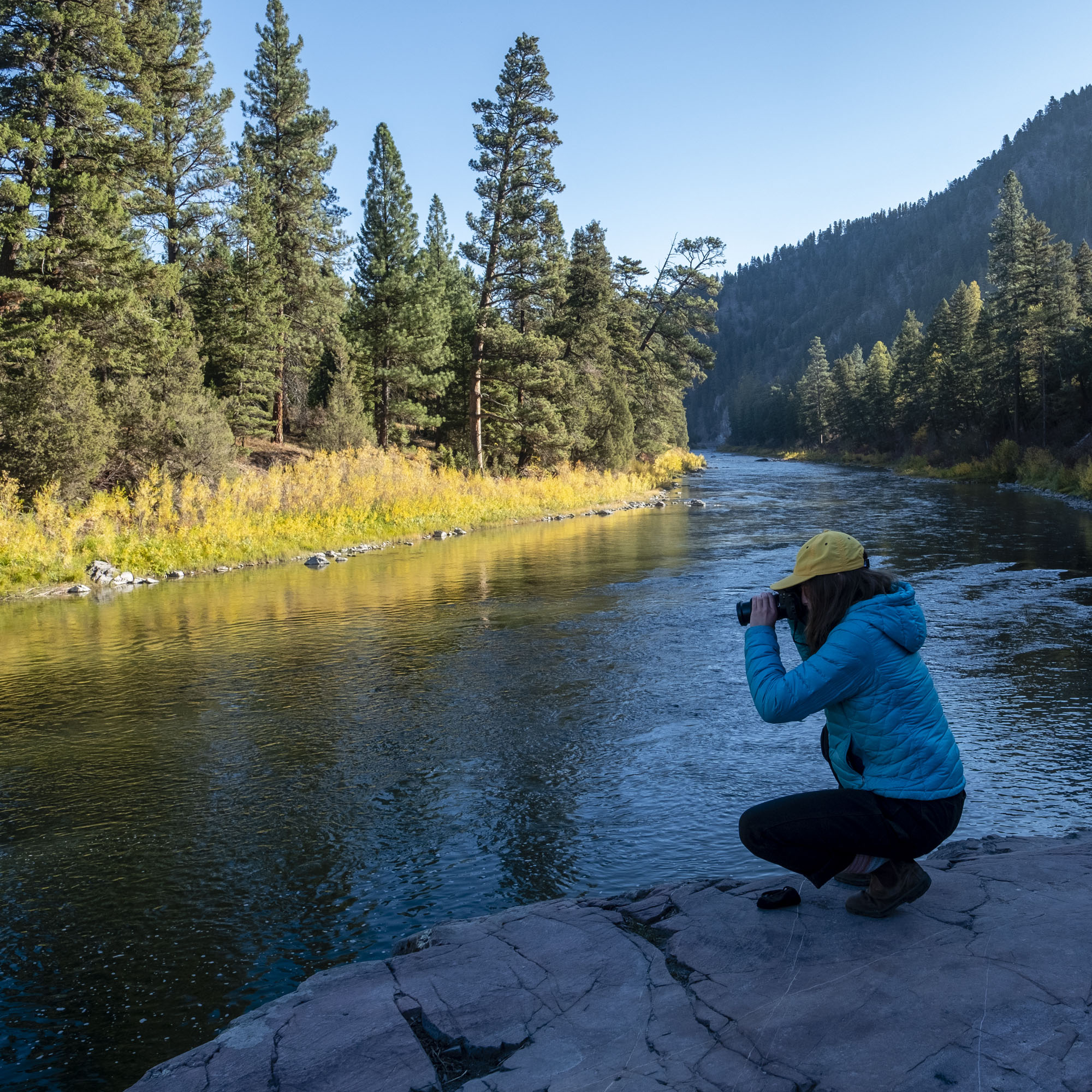Ben Montgomery
Fall 2018 T. Anthony Pollner Distinguished Professor
 Ben Montgomery, an investigative reporter in Florida for more than a dozen years, was the Pollner professor in the fall semester. As a reporter for the St. Petersburg Times, Montgomery and a colleague were finalists for a Pulitzer Prize for local reporting in 2010 for their series about decades of abuse at a Florida reform school for boys.
Ben Montgomery, an investigative reporter in Florida for more than a dozen years, was the Pollner professor in the fall semester. As a reporter for the St. Petersburg Times, Montgomery and a colleague were finalists for a Pulitzer Prize for local reporting in 2010 for their series about decades of abuse at a Florida reform school for boys.
He’s also won a number of other national awards, including a Columbia University Dart Award for reporting about trauma and a Casey medal for reporting on disadvantaged youth and families. He was also a finalist in 2011 for a Livingston Award, which honors outstanding work by journalists under the age of 35.
Montgomery was most recently a reporter for the Tampa Bay Times. His final investigative project before leaving in November was titled “Why Cops Shoot,” a review of six years of Florida police shootings that revealed how fear and bias breeds confusion, how order quickly dissolves into chaos and ways to avert the violence.
His third book, “The Man Who Walked Backward: An American Dreamer’s Search for Meaning in the Great Depression,” was published in 2018 by Little Brown & Co. At UM he taught a course on investigative techniques and narrative writing. He also served as an adviser to students at the Montana Kaimin newspaper.
REFLECTIONS:
The student couldn’t contain her excitement. She rushed into my office in Don Anderson Hall, cell phone in hand, a stack of papers under one arm. She apologized and tried to catch her breath.
“I got the search warrant,” she said. “I can’t believe they gave it to me, but I got it.”
Investigative journalism isn’t always exciting. Movies like “Spotlight” and “All The President’s Men” tend to blur and dramatize all the literal hours spent composing records requests and sifting through worthless documents looking for gold. But sometimes things click and a reporter catches a lucky break, and those are the few-and-far-between moments that keep us going.
The student was chasing a story about a woman who disappeared from Missoula and hadn’t been seen in six months, a case that had made the local news a few times but hadn’t garnered much attention otherwise. There were slim new leads for police. For a class assignment, she had filed records requests with several law enforcement agencies and had found the time to drive to scattered county courthouses to comb through files for clues about the woman’s disappearance. She struck gold when a county court released records related to a search warrant that had been served on the missing woman’s former boyfriend. The documents showed that the woman’s cell phone pinged a tower not far from the old boyfriend’s rural Montana home … hours after the woman was last seen alive.
This, for me -- the lucky fella who got to serve as the T. Anthony Pollner professor last fall -- was one beautiful payoff moment. (The same student, as it turns out, wasn’t even sure she wanted to be a journalist until the story she did in class began to take shape.) There was so much to like about teaching at the University of Montana -- the warmth, dedication and kinship of the journalism faculty, the contagious excitement of the journalists at the Montana Kaimin, the MOUNTAINS -- but I think that experience best exemplifies the value of the Pollner professorship. Students … getting it.
It’s so rewarding to see them in the process of understanding how to search for information, how to ask hard questions, how to be honest and fair, how to structure a story so readers hang with you.
In my term, my students got to hear directly from some of the best in the business: Michael Kruse and Bill Duryea from POLITICO, Corey Johnson from the Tampa Bay Times, Kelley Benham French from Indiana University, Maureen Dowd and Carl Hulse from the New York Times, Thomas Lake from CNN, freelance writers Tony Rehagen and Leah Sottile, and Wright Thompson from ESPN. A handful of them even flew to Missoula and visited our class, and hung around afterward for informal conversations about the craft of storytelling and the business of journalism with students off campus. Those intimate gatherings often felt like the best moments at writers conferences -- when no one is teaching and everyone is learning. Students told me more than once that those experiences were worth the tuition.
The Kaimin staff meetings were equal parts awkward and riotous, and sparked in me a lust to return to the newsroom. We sharpened ideas and tested out new curse words. I was delighted to see that one of my constant staff-meeting refrains made it up on the dry-erase board when I wasn’t present: THIS IS A STORY ABOUT _________________. And since I’ve been gone, I’ve been tickled to see the Kaimin publish some of the polished stories that were in their infancy in the fall.
I left Missoula in mid-December with an Igloo full of trout, a dozen real estate magazines, and immeasurable anticipation to watch and celebrate what those students do next.
